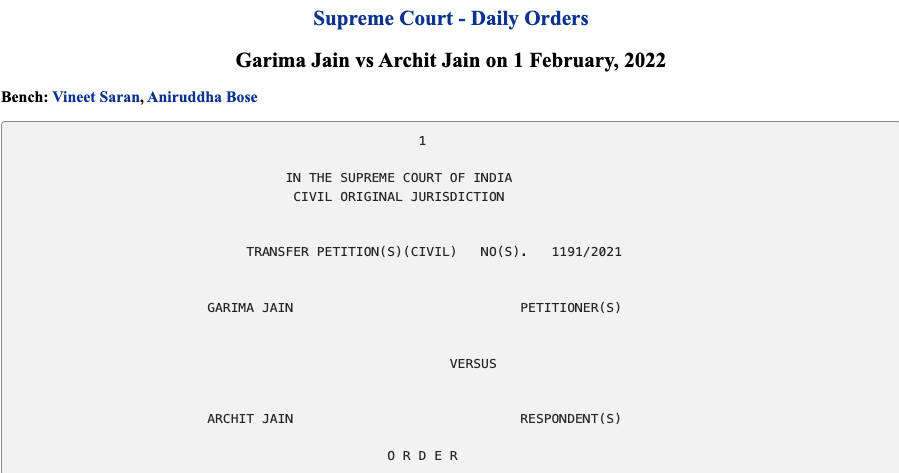Introduction: The case of Garima Jain vs. Archit Jain pertains to a transfer petition filed before the Supreme Court of India seeking the dissolution of marriage between the parties. The court’s intervention was sought to enforce a settlement agreement reached through mediation.

Background: Garima Jain filed a transfer petition seeking the dissolution of her marriage with Archit Jain. The parties had entered into a settlement agreement dated 07.12.2021, agreeing to divorce by mutual consent and withdrawal of all pending civil and criminal cases against each other. The settlement also included provisions prohibiting interference in each other’s lives and refraining from filing any future complaints or cases against each other or their families.
Key Arguments: The parties jointly stated that mediation was successful, and they had reached a settlement agreement. The settlement agreement involved Archit Jain paying Garima Jain a sum of Rs. 50 lakhs. Both parties agreed to the terms of the settlement and sought the court’s approval for the dissolution of their marriage.
Court’s Observations: The Supreme Court observed that the parties had willingly entered into the settlement agreement, agreeing to dissolve their marriage by mutual consent. The court noted the provisions of the settlement agreement, including the withdrawal of pending cases and the agreement not to interfere in each other’s lives.
Court’s Decision: Accepting the settlement agreement and exercising its power under Article 142 of the Constitution of India, the Supreme Court directed that the marriage between the parties be dissolved. The divorce petition filed by Archit Jain was allowed to the extent of dissolving the marriage. However, the court clarified that it did not accept the allegations made in the petition due to the amicable settlement between the parties. The transfer petition was disposed of, and the parties were instructed to abide by the terms of the settlement agreement.
Conclusion: The Supreme Court’s decision highlights the significance of mediation in resolving matrimonial disputes amicably. By accepting the settlement agreement and granting the dissolution of marriage, the court promotes the principles of mutual consent and peaceful resolution of conflicts. The case underscores the importance of parties’ voluntary agreement and cooperation in achieving a satisfactory outcome.
Reference: https://indiankanoon.org//doc/104147187/